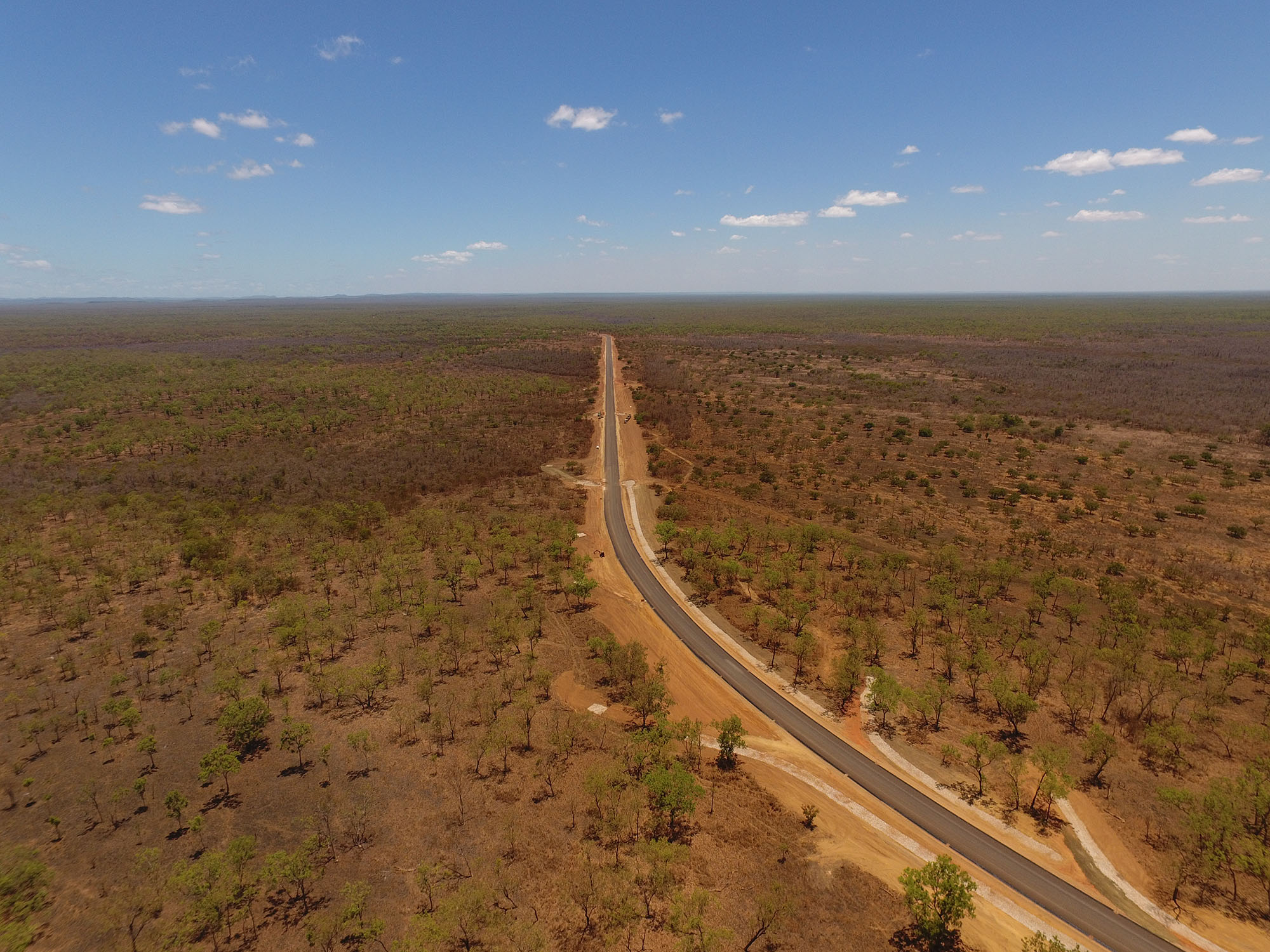Case Study: Cape York Region Package
The Cape York Region Package is a recently completed, 5 year $276 million program of works, that was jointly funded by the Australian and Queensland Governments to upgrade critical infrastructure on the Cape York Peninsula. The primary goal of the package was to improve connections to remote communities and to improve access to health and education and facilitate sharing of cultures.
 The completed seal at Piccaninny Black Soils section, Peninsula Developmental Road
The completed seal at Piccaninny Black Soils section, Peninsula Developmental Road
The benefits of the package included:
- improved access to Cape York for freight, tourists and other road users
- improved safety
- reduced ongoing road maintenance costs
- improved community infrastructure
- employment, training and business development opportunities for the region.
The package consisted of 3 sub-programs:
- $215.5 million program of works to progressively seal sections of the Peninsula Developmental Road (PDR) between Laura and the Rio Tinto boundary, south of Weipa
- $10 million over 4 years for sealing works on the Endeavour Valley Road through Hopevale
- $50.5 million to improve priority community infrastructure works identified by the Torres Cape Indigenous Council Alliance – formerly known as the Cape Indigenous Mayors Alliance. The 8 communities involved were Kowanyama, Aurukun, Pormpuraaw, Napranum, Mapoon, Wujal Wujal, Northern Peninsula Area and Lockhart River.
To encourage involvement of local First Nations communities and businesses we embedded 3 Key Results Areas (KRAs) into 'hard dollar' contracts that incentivized contractors to provide training, employment and economic opportunities to remote communities on the Cape York Peninsula.
The KRAs covered:
- minimum core training and upskilling requirements
- implementation of the Indigenous Economic Opportunities Plan and minimum 15% of Contract Direct Cost Amount
- local industry participation.
As a result of the KRAs the Cape York Regional Package:
- engaged over 311 Aboriginal and Torres Strait Islander employees and provided over 140,000 hours of Indigenous training and employment
- engaged over 15 local Aboriginal and Torres Strait Islander businesses to work in civil construction, vegetation and road maintenance works
- generated over $41 million worth of work completed by Aboriginal and Torres Strait Islander businesses that supported economic development in the region.
As a result of these KRAs, a First Nations-owned and majority Indigenous employed company Bama Services achieved TMR prequalification and were awarded the 10 Mile Creek (1.6km) and South of Duck Holes Creek (4.1km) PDR sealing projects in 2018. Bama Services is the first Aboriginal and Torres Strait Islander local business to ever achieve prequalification and be awarded a contract in Cape York.
Contractors North Queensland Civil Engineering Contracting (NQCEC), based in Weipa, completed an 8.8km section on the PDR in 2018. NQCEC implemented a program known as 'Stepping Stones' to ensure achievement of the KRAs. The program offered Aboriginal and Torres Strait Islander community members, most of whom had no experience in civil construction, internship-like training and employment in civil construction works on the PDR. NQCEC still runs this program today with the company reporting that over 50% of their local construction workforce is now made up of Aboriginal and Torres Strait Islander employees and continues to grow.
Our KRAs have been a catalyst for attitudinal and cultural shifts across contractors, who now champion the benefits, and actively seek to train, develop and employ local community members and businesses. The Australian Government is now using KRAs in similar infrastructure projects nationally.
The success of the Cape York Program Stage 1 has also resulted in the successful funding of Cape York Program Stage 2, allowing for further opportunities and benefits for the Cape York community.